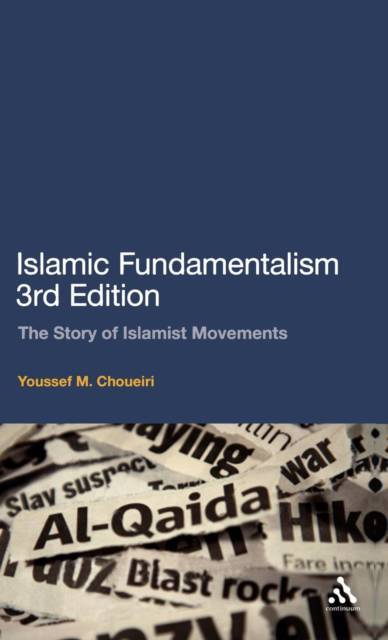
Bedankt voor het vertrouwen het afgelopen jaar! Om jou te bedanken bieden we GRATIS verzending (in België) aan op alles gedurende de hele maand januari.
- Afhalen na 1 uur in een winkel met voorraad
- In januari gratis thuislevering in België
- Ruim aanbod met 7 miljoen producten
Bedankt voor het vertrouwen het afgelopen jaar! Om jou te bedanken bieden we GRATIS verzending (in België) aan op alles gedurende de hele maand januari.
- Afhalen na 1 uur in een winkel met voorraad
- In januari gratis thuislevering in België
- Ruim aanbod met 7 miljoen producten
Zoeken
€ 373,45
+ 746 punten
Omschrijving
The world of Islamic fundamentalism has become, more or less, a daily preoccupation, not only of journalists and scholars, but, more importantly, of almost all governments and security services across the globe. This book presents a striking analysis of how and why Islamism and Jihadism have become such potent contemporary political forces, shedding new light on a much-misunderstood situation. This revised edition offers an analytical survey of the modern and contemporary Islamist movements by linking their emergence and potency to the historical background of Muslim societies and their encounter with Western globalism. Thus, it also locates the advent of new Islamist espousals of democratic governance. It includes an entirely new section dealing with post-1997 aspects, a section on al-Qa'ida and the aftermath of 9/11, as well as a discussion of the global reach of Islamism. This comprehensive volume explores the advent of a new wave of Islamism and its manifestations in Western countries, concluding with an overall evaluation of the future prospects of Islamism and alternative Western policies ranging from direct confrontation to political dialogue.
Specificaties
Betrokkenen
- Auteur(s):
- Uitgeverij:
Inhoud
- Aantal bladzijden:
- 272
- Taal:
- Engels
Eigenschappen
- Productcode (EAN):
- 9780826498007
- Verschijningsdatum:
- 1/02/2010
- Uitvoering:
- Hardcover
- Formaat:
- Genaaid
- Afmetingen:
- 140 mm x 216 mm
- Gewicht:
- 430 g

Alleen bij Standaard Boekhandel
+ 746 punten op je klantenkaart van Standaard Boekhandel
Beoordelingen
We publiceren alleen reviews die voldoen aan de voorwaarden voor reviews. Bekijk onze voorwaarden voor reviews.









